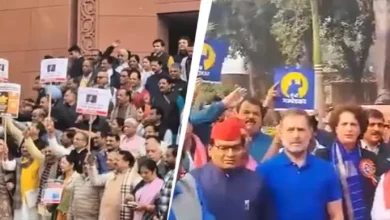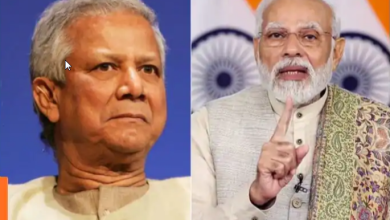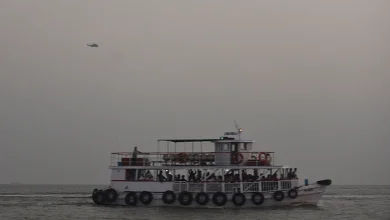Indian SC refuses to stay order allowing Hindus to pray in sealed basement of Gyanvapi mosque
 New Delhi: The Indian Supreme Court on Monday refused to stay the Varanasi district court’s order allowing Hindus to offer prayers in the sealed basement of the Gyanvapi mosque complex.
New Delhi: The Indian Supreme Court on Monday refused to stay the Varanasi district court’s order allowing Hindus to offer prayers in the sealed basement of the Gyanvapi mosque complex.
According to Kashmir Media Service, on January 31, the Varanasi court allowed Hindus to offer prayers in the basement of the complex.
On Monday, a bench of Chief Justice of India DY Chandrachud and Justices JB Pardiwala and Manoj Misra was hearing an appeal filed by the Muslim parties in the case challenging the Allahabad High Court verdict that rejected the petition against the Varanasi court order.
The top court said that the status quo at the complex should be maintained to ensure that both communities are able to offer prayers.
The Gyanvapi mosque complex has four cellars in its basement. One of them is still owned by the Vyas family of priests who used to live there. They had argued that, as hereditary priests, they should be allowed to offer prayers in that cellar.
After Hindus started offering prayers at the complex, the Anjuman Intezamia Masajid Committee, which manages the mosque, said that they were not informed of the development.
On February 9, the committee challenged the Varanasi court’s order in the Indian Supreme Court seeking an urgent hearing. The top court, however, directed them to approach the Allahabad High Court instead.
On February 26, the Allahabad High Court rejected the petition challenging the Varanasi court’s order. The High Court had said that there was prima facie evidence indicating that Hindu prayers were offered at the complex from 1551 till they were stopped in 1993.
Challenging the High Court verdict in the Supreme Court, senior Advocate Huzefa Ahmadi, representing the Muslim side in the case, submitted that allowing Hindu rituals to take place within the mosque complex would “fester some discord”.
“History has taught us some other lessons where violence has happened despite assurances,” Huzefa Ahmadi said. “This is an egregious order.”
The senior advocate questioned the insistence to bring up the case now. “For 30 years, the situation has been very normal,” he said.
Huzefa Ahmadi also submitted that the Uttar Pradesh government had implemented the Varanasi court’s order in “hot haste” before it could be challenged.








